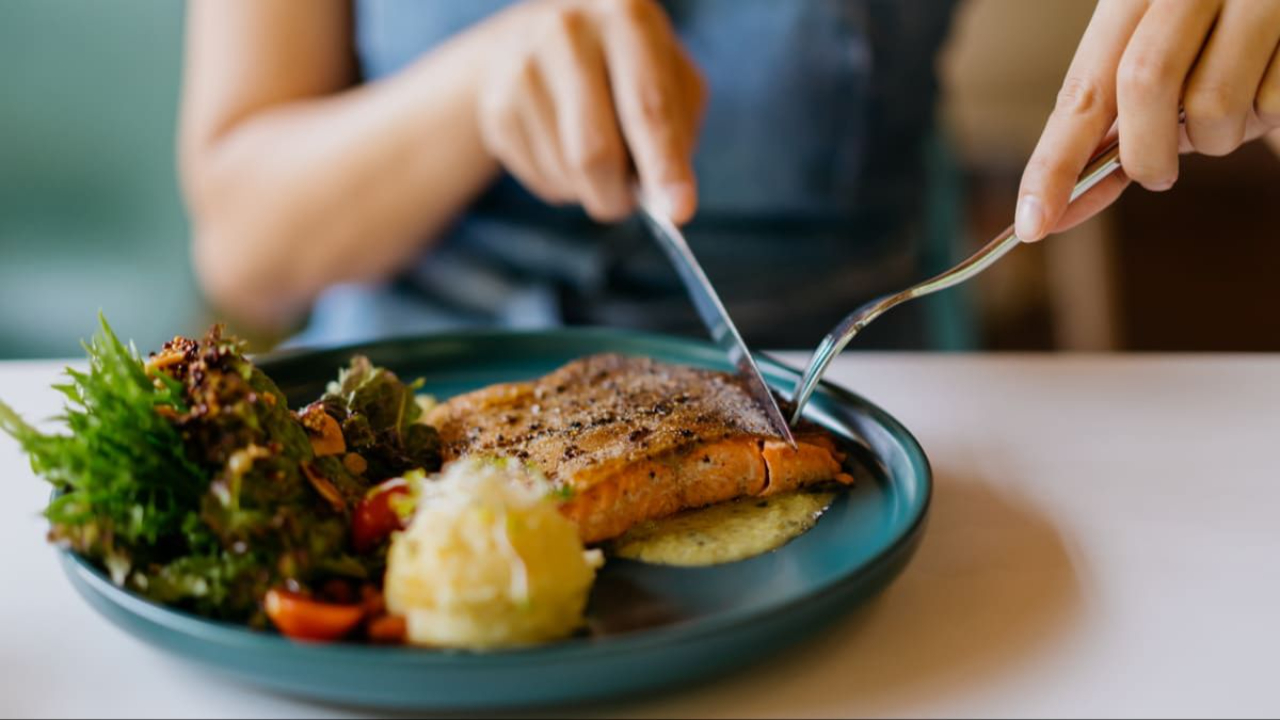
Is There a ‘Best Time’ to Eat for Fat Loss?
Feb 25, 2025When it comes to fat loss, there’s no shortage of advice on what to eat and how much to eat. But the question on many people’s minds remains: is there a "best time" to eat for fat loss? The timing of your meals can impact your energy, hunger, and metabolism, but the science behind meal timing for fat loss is not as straightforward as some might think. Let’s explore whether eating at specific times really makes a difference.
The Basics of Fat Loss
Before we dive into the timing aspect, it's important to remember that fat loss fundamentally comes down to one thing: creating a calorie deficit. This means you need to burn more calories than you consume. Whether you eat your calories all at once, or spread them throughout the day, your body will burn fat as long as you're in a calorie deficit. That being said, the timing of your meals can influence how easy it is to maintain this deficit, your performance during workouts, and how satisfied you feel between meals.
Timing and Metabolism
One theory behind eating at specific times for fat loss is that meal timing might help "boost" your metabolism. However, while eating regularly can help manage hunger and prevent overeating, the idea that eating at certain times can dramatically increase your metabolic rate isn't entirely supported by science.
Studies have shown that meal frequency and timing can have a small impact on the thermic effect of food (TEF) – the energy your body uses to digest food. However, the differences in calorie burn between eating more often or eating fewer, larger meals are generally insignificant when it comes to long-term fat loss. The real key lies in the overall quality and quantity of your diet.
Is There a Best Time to Eat?
The answer is... it depends. Here are a few approaches that might work for different individuals:
- Breakfast and Early Eating: For some, eating a substantial breakfast and having their first meal early in the day helps control hunger and cravings. A balanced breakfast with protein, fibre, and healthy fats can stabilise blood sugar levels, prevent energy crashes, and help with long-term fat loss. Eating early may also align with your body’s natural circadian rhythm, supporting metabolism and energy expenditure.
- Intermittent Fasting: One of the most popular meal timing approaches is intermittent fasting (IF). IF involves cycling between periods of eating and fasting. Some common methods include fasting for 16 hours and eating within an 8-hour window (16/8) or fasting for 24 hours once or twice a week. Research on intermittent fasting suggests that it can help with fat loss by promoting a reduction in calorie intake and potentially improving insulin sensitivity.
However, IF isn’t for everyone. While it can work for some, others may find that skipping meals leads to overeating later in the day, which could undo any potential benefits. Ultimately, the best approach is the one that fits your lifestyle.
- Pre- and Post-Workout Nutrition: If you're active, the timing of your meals around workouts can be significant. Eating protein and carbs before and after a workout helps fuel your body for exercise and aids recovery afterward. Research shows that eating protein shortly after exercise helps stimulate muscle repair and growth, which can increase fat burning over time as you build lean muscle. Post-workout meals can also help manage appetite and stabilise blood sugar.
- Evening Eating: While there’s a common belief that eating late at night leads to fat gain, this isn't necessarily true. Some studies suggest that eating later in the evening might impact fat loss, particularly if your calorie intake is high or if you’re eating a lot of carbs. However, research also shows that meal timing doesn’t have to be rigid — it’s total calorie intake, not the clock, that makes the biggest difference.
Does Timing Really Matter for Fat Loss?
Ultimately, meal timing has less impact on fat loss than the total number of calories you consume and the quality of your food choices. The most important factors for fat loss are:
- Calorie Deficit: You need to burn more calories than you consume.
- Nutrient-Dense Foods: Whole, nutrient-dense foods such as lean proteins, vegetables, healthy fats, and whole grains are essential for sustainable fat loss.
- Consistency: Maintaining a consistent eating pattern that fits your lifestyle will help you stay on track.
That being said, certain meal timing strategies like intermittent fasting, pre- and post-workout meals, or having balanced breakfasts can help support fat loss by managing hunger, supporting workouts, and reducing overeating.
Final Thoughts
While there isn’t a magical “best time” to eat for fat loss, paying attention to your body’s natural rhythms, workout schedule, and hunger cues can help you make the most out of your diet and exercise routine. What's most important is creating sustainable eating habits that support your long-term goals. Whether you prefer eating early in the day, practicing intermittent fasting, or sticking to three meals a day, find what works for you and make it a consistent part of your lifestyle.
Remember, when it comes to fat loss, consistency is key — so choose an approach that you can stick with in the long run!
Written by Tom Weaver
Stay connected with news and updates!
Join our mailing list to receive the latest news and updates from our team.
Don't worry, your information will not be shared.
We hate SPAM. We will never sell your information, for any reason.
